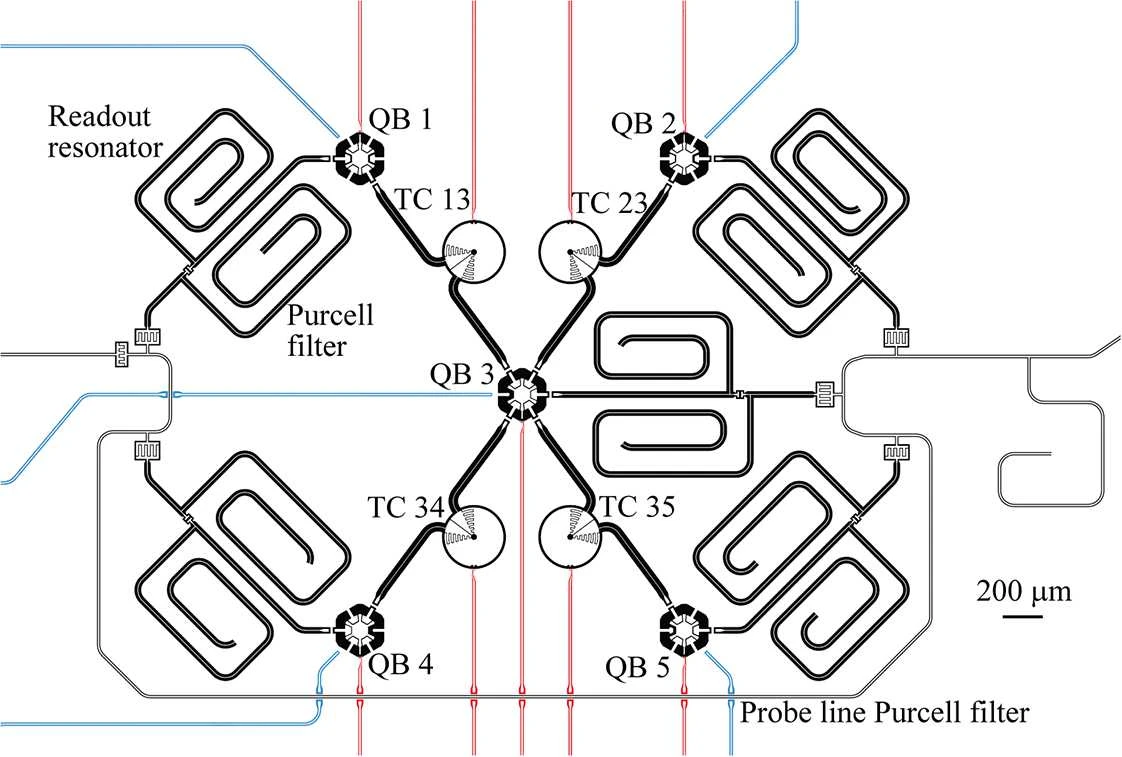Quantum computing, a rapidly evolving field, is set to revolutionize problem-solving with its ability to efficiently solve complex problems that challenge classical computers. This is due to the “quantum advantage,” which demonstrates algorithmic speedup on quantum hardware. However, most algorithms assume error-free quantum hardware, which is currently beyond our reach. Superconducting quantum hardware, like the IQM SparkTM prototype, is being developed to overcome these challenges. This technology has significant potential in education and research, from teaching concepts of quantum hardware to simulating complex scientific phenomena. As it matures, quantum computing is expected to find more applications in various fields.
What is the Role of Quantum Computers in Education and Research?
Quantum computing is a rapidly evolving field that promises to revolutionize the way we solve complex problems. This technology is expected to efficiently solve certain classes of problems that are challenging for classical computers in terms of computational time and hardware resources. This phenomenon, known as “quantum advantage,” is the demonstration of algorithmic speedup on quantum hardware. Several quantum algorithms have been devised to demonstrate this, for example, prime number factorization of large integers with an exponential speedup compared to its best known classical counterpart. A similar speedup exists when simulating the chemical and physical properties of molecules and the dynamics of fundamental physical models.
However, most of these algorithms assume an error-free quantum hardware with a number of quantum bits or qubits beyond the reach of current technology. With the inherent presence of the loss of quantum information in any physical system, a fault-tolerant quantum computer would employ a built-in quantum error correction where the number of error-free logical qubits is less than the error-prone and noisy physical qubits. Even in the absence of error-correction, noisy intermediate-scale quantum (NISQ) computers are thought to exhibit quantum advantage over classical high-performance computers (HPC) in the range of 100 to 1000 qubits, depending on the quality of the quantum hardware and the connectivity between the qubits.
How is Superconducting Quantum Hardware Utilized?
Among many physical platforms, superconducting quantum hardware is well-suited for scaling the number of qubits and improving their fidelity while maintaining connectivity. This makes it a preferred technology in the NISQ era with roadmaps towards fault tolerance. The IQM SparkTM prototype, a 5-qubit superconducting quantum computer, is designed and developed to enable a low-barrier access to both its hardware and software components. The hardware is self-contained with a packaged superconducting quantum processing unit (QPU), a dilution refrigerator, control electronics, while the software components allow for both a direct manipulation of the qubits by microwave pulses or to run small scale quantum algorithms composed of quantum gates.
What are the Educational Applications of Quantum Computers?
This system can be harnessed for a range of educational activities, from teaching the concepts of superconducting quantum hardware to developing an understanding of quantum error mitigation and performing experiments from different fields of research. Some applications are available only for an on-premises quantum computer. Use cases for educational purposes include calibration, benchmarking, visualization of pulses with oscilloscope, error mitigation, and execution of simple quantum algorithms.
How are Quantum Computers Used in Research?
Quantum computers also have significant applications in research. Some research results which appeared recently in scientific journals include simulation of neutrino oscillation, estimation of Jones polynomials, and an introduction into embedding techniques for quantum chemistry. These applications demonstrate the potential of quantum computers in advancing our understanding of complex scientific phenomena.
What is the Future of Quantum Computing?
The future of quantum computing is promising, with ongoing research and development aimed at improving the performance and scalability of quantum hardware. As the technology matures, we can expect to see more applications of quantum computers in various fields, from education and research to industry and commerce. The development of fault-tolerant quantum computers will be a significant milestone in this journey, enabling the execution of more complex algorithms and the solving of more challenging problems.
Conclusion
Quantum computing is a rapidly evolving field with significant potential in education and research. The development of superconducting quantum hardware, such as the IQM SparkTM prototype, is enabling low-barrier access to this technology, facilitating its use in teaching and research. As the technology matures and becomes more accessible, we can expect to see an increasing number of applications of quantum computers in various fields.
Publication details: “On-premises superconducting quantum computer for education and research”
Publication Date: 2024-04-29
Authors: Jami Rönkkö, Olli Ahonen, Ville Bergholm, Alessio Calzona, et al.
Source: EPJ quantum technology
DOI: https://doi.org/10.1140/epjqt/s40507-024-00243-z

